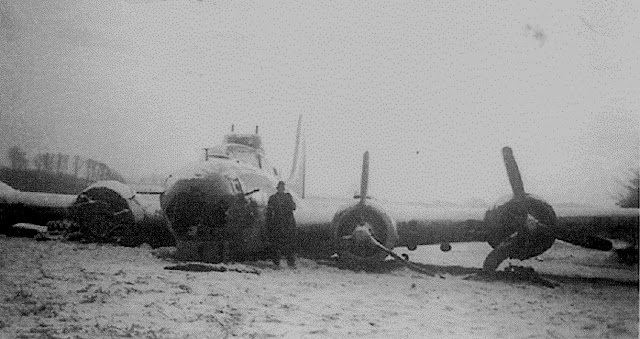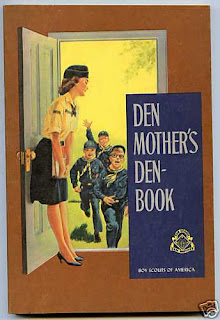The Cost of Freedom: A True Story, Part Four
The Conclusion of my Father's Wartime Adventures:
"I was with other American prisoners of war, but did not feel like talking much. Once in the prison camp, I slept on a pile of straw with a blanket. We must have lined up for food distribution, but it was awful—all I remember is weed soup. We were mostly left to ourselves all day: there was no reveille or routine like that.
"I was with other American prisoners of war, but did not feel like talking much. Once in the prison camp, I slept on a pile of straw with a blanket. We must have lined up for food distribution, but it was awful—all I remember is weed soup. We were mostly left to ourselves all day: there was no reveille or routine like that.
I had left my clarinet “Elmer” in the barracks in England. (It was mailed to me years later—I had my name on the case.) But somehow I got a metal clarinet that came from the Red Cross—I still have it! I would go out into a ditch to play it, and had no trouble from the other prisoners. It kept me sane!
We divided up Red Cross boxes from America that included cigarettes. I swapped mine for food and for a little notebook that was made by Russian POWs. The Russians were in their own compound enclosed by a barbed wire fence. It was separated from our compound by a space patrolled by police dogs. But the Russians somehow got over our fence anyway, and traded stuff they had made from scraps for cigarettes. The guards would gladly have shot them! Our “toilet” was a barracks with rows of slanted seats with buckets. But it kept the stink under control. The Germans had some prisoners man the “honey buckets.”
Three months later we heard rumors that Patton’s tank troops were coming to free us. I do not recall the date but on that day there was much excitement in camp. We heard that “S.S.” troops were on one side of the camp, and Americans on the other! Lots of gunfire erupted. Since I was outside, I dived into a ditch and lay still. Looking up, I saw that bullet holes had appeared in the wall of a tent next to me: if I had sat up, I would have been killed, shot by one side or the other.
After more shooting, things eventually quieted, and there were shouts: “The Americans are here!” We scrambled out, happily liberated from the clutches of the Nazis. I recall stepping over some old German guards—now quite dead—as we were guided out. After de-lousing and feeding, we burned our stinky uniforms and got new clothes.
I was flown in a DC 3, which circled around the Eiffel Tower, and brought to “Camp Lucky Strike,” a big Army Field Hospital Camp in Saint-Sylvian, France for liberated prisoners of war.
I brought my Red Cross clarinet with me, and soon was being checked over by doctors. I weighed only 95 pounds, and was suffering from starvation, lice, and I’m not sure what else: I felt very weak. Because of my poor physical condition, I ended up convalescing for some time at Camp Lucky Strike. We were lined up for good meals, and could brush our teeth and bathe whenever we wanted.
Some of us went to Paris on leave, but I did not—I was in a hurry to get home. I got on a “Liberty Ship” by way of buses, trucks, and trains, and spent 20 days in the “Last Convoy” of the war. Forming up, we steamed west by way of Newfoundland. The convoy did zigzagging, as there was still fear of submarines, and we deliberately went through fog and storms to avoid them. Finally, we got to New York City, and were delighted to see the Statue of Liberty. We were home: the war in Europe was over, though not yet in Japan.
When we got off the ship in New Jersey, I telephoned my folks to tell them I was still alive. They were amazed, for they had thought I was dead. In fact, my mother had already put up her “Gold Star Mother” star in a window, which indicated she had given a son for her country. After recovering from some reparative back surgery at Ft Sheridan, I took the Electroliner to Milwaukee, and then a streetcar to West Allis, where I picked up a cab to drive me home. From the cab I noticed my father walking on the street, doing his mail deliveries! Stopping the driver immediately, I got off to greet him: he was shocked, but overjoyed: here was his only son, back from the dead! Soon I hopped back in and went home to my mother.
A short time later, I looked up Libby Marshalek, and took her out. I soon proposed, and we were married a very short time later, while I was on “terminal leave.” My cousin Rodney, who had a wife and several kids, was my best man. He did that despite the fact that he hated flyers: soldiers like him had had bloody battles with the Nazis in the dirt and gore, while aviators were safe, far above the fight.
Libby and I had a 3 month honeymoon while I was on terminal leave, driving in a 1936 Plymouth down past Lake Michigan, and on to Florida, by way of Uncle Harry’s place in Milton, Massachusetts and Libby’s Aunt Julia in New Jersey. We had car troubles, and lots of other adventures, including a coconut smashing our front window out during a hurricane, while we were in Mead Hotel.
Finally, after a long wait in Miami, I was officially discharged. I was again a civilian. I had a choice: should I pursue flying as a career, or get out of aviation altogether? The living conditions of an airline pilot did not appeal to me—sleeping in a different city each night, and basically being an airborne bus driver. The idea of being a famous industrial designer like Brooke Stephens, who designed refrigerators and many other items, however, did.
I tossed a coin: industrial design won. That meant the end of my flying career: the crash landing in Schleswig Holstein in Germany on January 17, 1945 had just become my final landing.
Since my wartime adventures, and during over 60 years of marriage, Libby and I have been blessed with six fine children, fifteen grandchildren and so far, two great-granddaughters. We have lived happily every after --except for many house plumbing problems."
Donald Horning, October 2005 (pictured with his wife Libby and some of their grandchildren and great-grandchildren)
G.M. Horning










This is great. I'd never seen that last picture.
ReplyDeleteAnd perhaps I should add that as a result of Dad’s experiences, my own Horning boys yet today, even though they do not smoke, always make a habit of carrying a cigarette lighter, just in case!
ReplyDelete